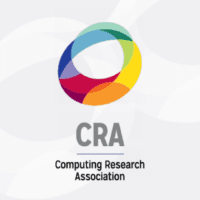Recipients of the 2024-2025 CRA Outstanding Undergraduate Research Award Announced
By Sheila Khan, Program Associate, CRA-E
 The Computing Research Association (CRA) proudly congratulates the recipients of the 2024-2025 CRA Outstanding Undergraduate Researcher Award!
The Computing Research Association (CRA) proudly congratulates the recipients of the 2024-2025 CRA Outstanding Undergraduate Researcher Award!
This prestigious award, generously supported by Sandia National Laboratories and Lawrence Berkeley National Laboratory (LBNL), celebrates exceptional undergraduate students at North American colleges and universities who demonstrate remarkable research potential in computing.
Faculty from across North America nominated students who exemplify outstanding research capabilities and a commitment to advancing the field of computing. This year saw a significant increase in nominations, up 47 percent from the previous year, and a 40 percent increase in the number of institutions represented — highlighting the incredible depth of talent and dedication in the computing research community.
Due to the number of high-quality applications and the generous support of our sponsors, CRA was able to expand the number of awardees and runners-up this year.
New Opportunities and Recognition for Awardees
Awardees will receive up to $1,500 in financial support to attend a research conference of their choice, providing a platform to showcase their work and connect with the broader research community. In addition, CRA is introducing a unique opportunity for awardees to directly engage with researchers from Sandia National Laboratories and Lawrence Berkeley National Laboratory (LBNL). These leading research institutions are eager to hear about the innovative work of the awardees and have generously sponsored this program to foster emerging talent in computing research. CRA plans to host a virtual event in early 2025 where awardees can present their research to Sandia and LBNL researchers. Faculty mentors will also be invited to attend.
 “Sandia National Laboratories is proud to sponsor the CRA Outstanding Undergraduate Researcher Award to recognize and celebrate the groundbreaking contributions of these talented young researchers,” said Jen Gaudioso, Director of Computing Research, Sandia National Laboratories. “Their innovative work underscores the vital role computing research plays in addressing the challenges of tomorrow.”
“Sandia National Laboratories is proud to sponsor the CRA Outstanding Undergraduate Researcher Award to recognize and celebrate the groundbreaking contributions of these talented young researchers,” said Jen Gaudioso, Director of Computing Research, Sandia National Laboratories. “Their innovative work underscores the vital role computing research plays in addressing the challenges of tomorrow.”
“LBNL is honored to support this award, which highlights the dedication and brilliance of undergraduate students across North America,” said Jonathan Carter, Associate Laboratory Director, Computing Sciences at the Lawrence Berkeley National Laboratory. “These researchers represent the next generation of innovators who will drive the field forward with their fresh perspectives and exceptional talent.”
In addition to the awards themselves, all honorees — including runners-up, finalists, and honorable mentions — will receive a digital credential acknowledging their achievements, which can be shared on their LinkedIn profiles and networks. They will also be provided with a special CRA Outstanding Undergraduate Researcher Award insignia, intended to showcase their honors during conference presentations and other professional opportunities.
Awardees
This year’s nominees demonstrated exceptional research achievements, with many contributing to multiple projects, authoring publications, and tackling longstanding challenges in computing. Their work spans theoretical advancements and real-world applications, collectively showcasing the bright future of computing research.
Chris Trevisan, University of Waterloo
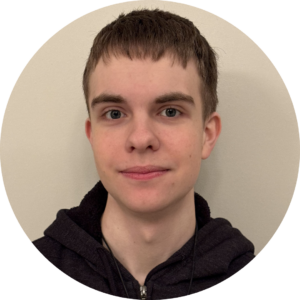 Chris Trevisan is a junior at the University of Waterloo, majoring in Computer Science. His research area includes theory and algorithms. Chris’ research contributions have focused on improving algorithms for sorting datasets in the context of uncertainty. In this “adversarial comparison” model, the sorting algorithm must account for the possibility that it is impossible to distinguish the relative order of pairs of elements in a list, while it may be possible to rank those elements relative to others. His research provides a new algorithm for this challenge, which he published at Symposium on Discrete Algorithms (SODA) 2024. Outside of research, he is involved in programming competitions such as the Canadian Computing Competition and Canadian Computing Olympiad. He also serves as a tutor for many math and computer science courses.
Chris Trevisan is a junior at the University of Waterloo, majoring in Computer Science. His research area includes theory and algorithms. Chris’ research contributions have focused on improving algorithms for sorting datasets in the context of uncertainty. In this “adversarial comparison” model, the sorting algorithm must account for the possibility that it is impossible to distinguish the relative order of pairs of elements in a list, while it may be possible to rank those elements relative to others. His research provides a new algorithm for this challenge, which he published at Symposium on Discrete Algorithms (SODA) 2024. Outside of research, he is involved in programming competitions such as the Canadian Computing Competition and Canadian Computing Olympiad. He also serves as a tutor for many math and computer science courses.
Gene Kim, Stanford University
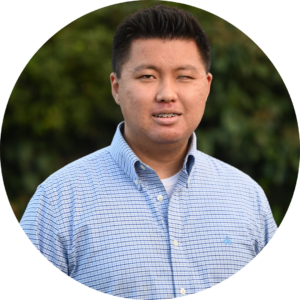 Gene Kim is a senior at Stanford University, majoring in Symbolic Systems. His research area is Human Computer Interaction, with a specific focus on assistive technology to support blind and visually impaired people. Extending his research network beyond Stanford, Gene has collaborated with faculty at the University of Washington, Northeastern University and the University of Chicago to design, engineer, and evaluate new approaches to support blind users (like himself) in tasks such as 3D printing, machine knitting, and circuit design. His research contributions have been published in selective venues including SIGACCESS, CHI and TACCESS. Outside of research, he has served as an undergraduate teaching assistant for introductory computer science courses. He also serves as a leader in a blindness advocacy organization, co-founded an international mentorship program for aspiring blind scientists and engineers, and teaches blind youth about STEM.
Gene Kim is a senior at Stanford University, majoring in Symbolic Systems. His research area is Human Computer Interaction, with a specific focus on assistive technology to support blind and visually impaired people. Extending his research network beyond Stanford, Gene has collaborated with faculty at the University of Washington, Northeastern University and the University of Chicago to design, engineer, and evaluate new approaches to support blind users (like himself) in tasks such as 3D printing, machine knitting, and circuit design. His research contributions have been published in selective venues including SIGACCESS, CHI and TACCESS. Outside of research, he has served as an undergraduate teaching assistant for introductory computer science courses. He also serves as a leader in a blindness advocacy organization, co-founded an international mentorship program for aspiring blind scientists and engineers, and teaches blind youth about STEM.
Hannah Guan, Harvard College
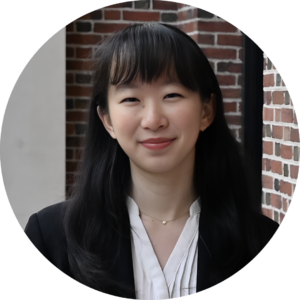 Hannah Guan is a sophomore at Harvard College, majoring in Computer Science and Statistics. Her research area is bioinformatics/computational biology. Her projects have focused on identifying the complex relationship between genetics and aging-related health traits. She has won numerous leadership, academic, and research awards. Hannah is also a leader in her community Serving as the Director of Research at Charles River Economics Labs and the Director of Programming at Harvard WECode Conference. She is also the founder and CEO of Math Include, a non profit for youth development and education equity.
Hannah Guan is a sophomore at Harvard College, majoring in Computer Science and Statistics. Her research area is bioinformatics/computational biology. Her projects have focused on identifying the complex relationship between genetics and aging-related health traits. She has won numerous leadership, academic, and research awards. Hannah is also a leader in her community Serving as the Director of Research at Charles River Economics Labs and the Director of Programming at Harvard WECode Conference. She is also the founder and CEO of Math Include, a non profit for youth development and education equity.
Helena Vasconcelos, Stanford University
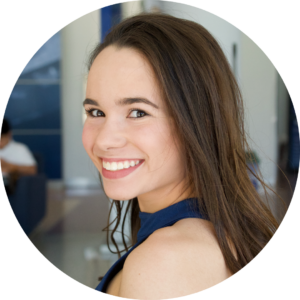 Helena Vasconcelos is a senior at Stanford University, majoring in Symbolic Systems with a concentration in Artificial Intelligence. Her research projects focus on improving the understandability and explainability of AI systems, using methods from human computer interaction . She has first authored multiple papers that identify limitations of AI-based systems, contributing to a scientific model of how generative AI techniques like large language models can be relied upon to support human decision making. Outside of research she is heavily involved in theater, the Stanford Equestrian Team, and outdoor education.
Helena Vasconcelos is a senior at Stanford University, majoring in Symbolic Systems with a concentration in Artificial Intelligence. Her research projects focus on improving the understandability and explainability of AI systems, using methods from human computer interaction . She has first authored multiple papers that identify limitations of AI-based systems, contributing to a scientific model of how generative AI techniques like large language models can be relied upon to support human decision making. Outside of research she is heavily involved in theater, the Stanford Equestrian Team, and outdoor education.
Jonathan Ivey, University of Arkansas
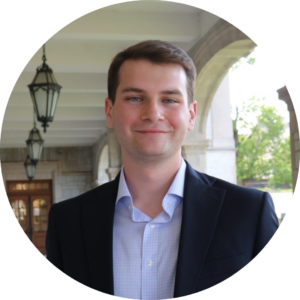 Jonathan Ivey is a senior at the University of Arkansas, majoring in Data Science and Mathematics. His research areas include natural language processing and data science/analytics. His recent project focused on automated approaches for determining the stress level of individuals based on their social media posts. Stress detection is an important method in mental healthcare research, as it enables a large-scale analysis of stress levels avoiding the biases of self-reported stress levels. Prior research in this area, however, has not considered the performance of these models on content generated by minority communities. Jonathan performed an empirical evaluation that demonstrates how ineffective prior approaches are on detecting stress levels from minority populations and developed a new approach that performs as well on all groups. Outside of research, he is Director of Policy, and the Director of Student Relations for his student government. He also has served as an ACT and Mathematics tutor and mentored numerous students from rural Arkansas through the Celebrating Discovery program.
Jonathan Ivey is a senior at the University of Arkansas, majoring in Data Science and Mathematics. His research areas include natural language processing and data science/analytics. His recent project focused on automated approaches for determining the stress level of individuals based on their social media posts. Stress detection is an important method in mental healthcare research, as it enables a large-scale analysis of stress levels avoiding the biases of self-reported stress levels. Prior research in this area, however, has not considered the performance of these models on content generated by minority communities. Jonathan performed an empirical evaluation that demonstrates how ineffective prior approaches are on detecting stress levels from minority populations and developed a new approach that performs as well on all groups. Outside of research, he is Director of Policy, and the Director of Student Relations for his student government. He also has served as an ACT and Mathematics tutor and mentored numerous students from rural Arkansas through the Celebrating Discovery program.
Kerria Pang-Naylor, Harvey Mudd College
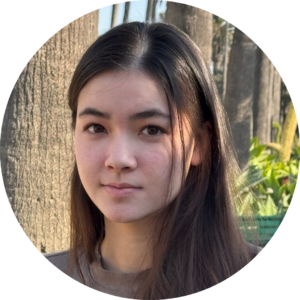 Kerria Pang-Naylor is a senior at Harvey Mudd College, majoring in Computer Science and Mathematics. Kerri’s research in artificial intelligence has examined fundamental approaches to model error guarantees for abductive inference. Abductive inference refers to the ability to draw a likely conclusion based on a set of observations (e.g. “I just woke up and the ground is wet” might lead to the inference “it rained last night”), and incorporating this kind of reasoning into artificial intelligence is challenging. . Outside of research, she has been a tutor for computer science and mathematics courses.
Kerria Pang-Naylor is a senior at Harvey Mudd College, majoring in Computer Science and Mathematics. Kerri’s research in artificial intelligence has examined fundamental approaches to model error guarantees for abductive inference. Abductive inference refers to the ability to draw a likely conclusion based on a set of observations (e.g. “I just woke up and the ground is wet” might lead to the inference “it rained last night”), and incorporating this kind of reasoning into artificial intelligence is challenging. . Outside of research, she has been a tutor for computer science and mathematics courses.
Prasann Singhal, University of Texas at Austin
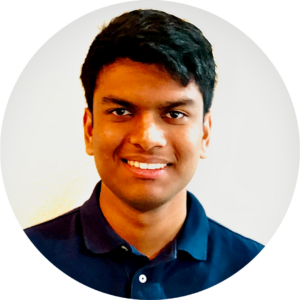 Prasann Singhal is a senior at the University of Texas at Austin, majoring in Computer Science and Linguistics. His research area includes artificial intelligence and machine learning, with a focus on improving the text generation abilities of large language models. In one project, Prasann identified a significant limitation of a widely-used method ( reinforcement learning from human feedback) that is used to train and evaluate large language models like ChatGPT. Building on this work, Prasann developed a new approach for improving these fine-tuning methods. Outside of research, Prasann serves as an officer for Laurel Co-operative, a student-run affordable housing community in Austin. He also is the founder of the Katy HACK Initiative which provides weekly lessons on Computer Science topics for elementary/junior high students.
Prasann Singhal is a senior at the University of Texas at Austin, majoring in Computer Science and Linguistics. His research area includes artificial intelligence and machine learning, with a focus on improving the text generation abilities of large language models. In one project, Prasann identified a significant limitation of a widely-used method ( reinforcement learning from human feedback) that is used to train and evaluate large language models like ChatGPT. Building on this work, Prasann developed a new approach for improving these fine-tuning methods. Outside of research, Prasann serves as an officer for Laurel Co-operative, a student-run affordable housing community in Austin. He also is the founder of the Katy HACK Initiative which provides weekly lessons on Computer Science topics for elementary/junior high students.
Venkataram Sivaram, University of California, San Diego
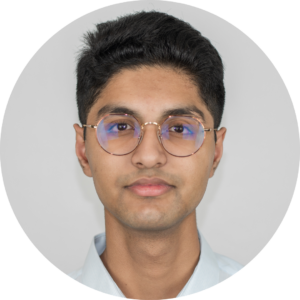 Venkataram Sivaram is a senior at the University of California, San Diego, majoring in Computer Science and minoring in Mathematics. His research area includes graphics, visualization, and computational geometry. His research has appeared at the ACM SIGGRAPH symposium, and focuses on methods to accelerate rendering of complex scenes like those in video games and movies. For example, Venkataram developed a new approach for representing complex geometries for real-time rendering of complex meshes. Outside of research, he has been a Junior Counselor for the Rose Mathematics Program and a tutor for Computer Graphics.
Venkataram Sivaram is a senior at the University of California, San Diego, majoring in Computer Science and minoring in Mathematics. His research area includes graphics, visualization, and computational geometry. His research has appeared at the ACM SIGGRAPH symposium, and focuses on methods to accelerate rendering of complex scenes like those in video games and movies. For example, Venkataram developed a new approach for representing complex geometries for real-time rendering of complex meshes. Outside of research, he has been a Junior Counselor for the Rose Mathematics Program and a tutor for Computer Graphics.
Runners Up
CRA congratulates this year’s runners-up, who demonstrated remarkable research accomplishments and exceptional promise in advancing the field of computing.
- Arya Teymourlouei, University of Maryland, College Park
- Cailyn Smith, Colorado School of Mines
- Claire Jin, Carnegie Mellon University
- Jake Ginesin, Northeastern University
- Juntao Ren, Cornell University
- Phevos Paschalidis, Harvard College
- Ria Doshi, University of California, Berkeley
- Srinath Mahankali, Massachusetts Institute of Technology
Finalists
CRA recognizes this year’s finalists, whose impressive research contributions and dedication to innovation highlight their potential to shape the future of computing.
- Abihith Kothapalli, Vanderbilt University
- Alan Baade, University of Texas at Austin
- Alyssa Hanson, Colorado School of Mines
- Andrew Balch, University of Virginia
- Arif Kerem Dayi, Harvard College
- Artem Agvanian, Brown University
- Benjamin Kim, University of Illinois Urbana-Champaign
- Cordelia Ludden, Tufts University
- Corinn Tiffany, Brown University
- Dutch Hansen, University of Southern California
- Emre Adabag, Columbia University
- Haritheja Etukuru, New York University
- Harry Chen, Duke University
- Hriday Chhabria, University of Michigan
- Jiayue (Gaveal) Fan, Cornell University
- Jizheng He, University of Illinois Urbana-Champaign
- Kuan Heng (Jordan), University of California, Los Angeles
- Mai Bui, Mount Holyoke College
- Maxine Liu, Harvey Mudd College
- Owen Eckart, Purdue University
- Ryan Milstrey, University of California, Merced
- Taiming Lu, Johns Hopkins University
- Vishak Srikanth, Yale University
- Will Liang, University of Pennsylvania
Honorable Mentions
CRA commends this year’s honorable mentions for their noteworthy research efforts and commitment to excellence in computing.









